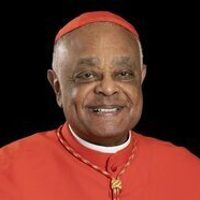Catholics my age and older may well recall a time when our fellowship and encounters with other Christians was limited – if not awkward. We occasionally were advised not to attend the church weddings or baptisms of our Protestant brothers or sisters. When a Catholic married a Christian of another denomination, they sometimes had to celebrate that marriage outside of a church, occasionally at the rectory of the parish of the Catholic partner. There were other situations that highlighted the divisions that still remain even now among the Christian communities. Today, we choose to accentuate the things we hold in common and eagerly seek opportunities to emphasize our unity in Christ. True ecumenism does not deny the sad reality of our divisions, it simply chooses to work on resolving them with charity and patience.
The Octave of Prayer for Christian Unity begins each year on Jan. 18 and concludes on Jan. 25, the Feast of the Conversion of St. Paul. These eight days are a time when Christians the world over are invited to pray for the healing of the rupture in the Body of Christ. Catholics and all other Christians should always pray for the unity that Christ pleaded for on the night before He suffered and died, but most especially during this Christian observance.
The Second Vatican Council was a watershed moment for our Church’s efforts at ecumenism. The Decree Unitatis redintegratio [“Restoration of Unity”] was a clarion call for Catholics to be actively engaged in ecumenical dialogue with Christians throughout the world. That dialogue should exist on multiple levels – within local community where ecumenical associations and projects bring Christians together in joint efforts, at the universities that support ecumenical studies and programs, and at juridical exchanges where ecclesial officials and authorities model warm encounters and joint expressions of dialogue that help Christian unity take shape with official sanctions and decrees.
We should not delude ourselves into believing that the work of ecumenism is an easy task or that there are not significant differences that continue to stand in the way of full Christian unity. However, the challenges must never become reasons for not humbly pursuing this important endeavor. The recent popes have offered some stunning examples of Christian channels of communication. Pope St. Paul VI embraced Patriarch Athenagoras and they mutually lifted the decrees of excommunication in 1965 that had been exchanged in 1054. Pope St. John Paul II invited a host of religious leaders together in Assisi in 1986 to pray for peace, and he did so in the face of some severe curial opposition. Pope Benedict XVI authorized a number of interfaith consultative statements on topics that once would have been thought to have been impossible. Pope Francis has developed such a warm relationship with Patriarch Bartholomew and other leaders Oriental churches that the distrust that once was the legacy of the Schism of 1054 has been significantly lessened.
What can we do today to hasten Christian unity? Obviously, the first endeavor must be to pray for the restoration of a Church fully united in Christ. On a local level, we must find opportunities to bring our people together in shared activities and public witness of our desire to be one Church again. I urge our pastors to be active in neighborhood ecumenical and interfaith associations and fraternal encounters. This one week of the Prayer for Christian Unity must give way to other moments when we ask the Holy Spirit to restore the oneness of the Christian world.












